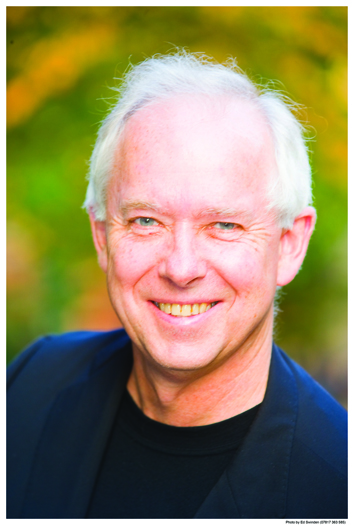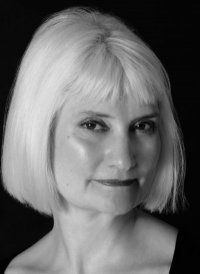
There are many tricks that I have used repeatedly throughout my career to date, and others that I have done only really as one-offs. I am happy in a show to perform effects from either category, in fact I like to mix them up a little. Generally I prefer to use the term ‘effects’ in preference to a word like ‘tricks’, but in the following I will use them interchangeably. A lot of what I say will also apply to most psychic routines and how we lead our lives in general.
• Let me start with this which will seem odd advice, but it comes from many years on the road and I will offer it anyway: Never let sailors tie knots. Think about that statement and you will soon see that I am right.
• It is good to make up a programme which has opening, closing, and intermediate effects. Variety is generally a good thing, and order and selection can always be varied for different occasions and conditions. Five well-executed tricks may be better than 25 ordinary ones and could well stay in the audience’s mind a lot longer.
• Sometimes people will come up after a show or a single trick and say, ‘How did you do it?’ It is no help either to you or them to tell them – they will be disappointed while you will just lose their respect and perhaps an opportunity of future work. In such circumstances it is best to say something like, ‘Can you keep a secret?’ and if they say yes, reply, ‘So can I!’
• If a trick fails. If a trick fails, just say, ‘The real magician will be here shortly.’ This usually produces a laugh, and a degree of goodwill which can actually be quite helpful to the rest of your performance.
• Levitation without apparatus. You cannot go past the Balducci Levitation which if you hunt around you can just get off the net.
• Misdirection is the only way forward. (This is a thought you can revisit many times.)
• Of course a whole book could be written about misdirection. Another way of making this point is to say that sleight-of-hand is important but is not the be-all and end-all. Work on your patter.
• You may sometimes find yourself performing in strange venues, such as bare, draughty halls. I once found myself performing at a Lotto outlet, another time at an RSA. You may also have to eat unusual meals with members of community fundraising committees.
• A sense of vocation. Of course you will make very little money compared to dentists and others. But that is a choice you must make. You do this work because you love it.
• Even so, I am still sometimes asked: Why do it? Well, if you are lucky, you are creating memories. These are precious. You will be remembered for the overall magic you have brought into people’s lives. Magic is the poetry of the stage. Be on your guard, however, as there can also be a lot of alcohol and drug addiction in this business.
• After a while, some magicians start to ‘walk through’ their performances, so you must find ways of maintaining your enthusiasm for what you do. Remember, there may be a young boy out there in the audience who himself aspires to be a magician. That boy could have been you once or me.
• Volunteers. If you get a volunteer up on stage, start by saying, ‘What’s your name, sir?’ If they answer, for example, ‘Bob,’ you then say, ‘Sorry?’ They will say, ‘Bob,’ again, at which point you say, ‘No I heard you, I’m just sorry.’
• ‘Horses for courses’. What works well in a place like Christchurch will not necessarily go down in Masterton. That said, The Severed Head of Patrick D. Evans is a popular effect which needs little preparation and has made money for me in recent years.
• Sometimes magicians divide along a line as to whether they belong to the apparatus school or the non-apparatus school. I myself am happy with both. I am not an innovator, I will take my tricks from anywhere. Nevertheless I have always put in the hard yards beforehand.
• Once I was approached after a show by a beautiful woman who said she wanted to learn my secrets. We talked excitedly all through the night and spent many subsequent weeks and months together. In my heart I dedicate each new show to her. When I am developing new tricks, I often wonder, would she be fooled by this one.
• Television. Magic on television is not magic. There is no substitute for a live performance of Satan’s Scissors or The Floating Arab. Mostly I prefer the conversational style of presentation, but a more dramatic routine is not without its advantages.
• Magical ‘teams’. These are a contradiction in terms. A magician works alone, or with an assistant.
• Likewise feminist magicians. I once sat through a whole show by Fat Girls Walking Slowly and, if I can deal with the subject by putting it this way, I have to admit I was distinctly unimpressed. My note on ‘magical teams’ above is also relevant here.
• It is important to be neatly dressed, but it is not a good idea to overdo it, especially if you are working with children. For a few years I tried wearing raven’s wings but they were not a great success and I would not recommend them.
• Of course you need a good name. Blitz the Magician was a good one, likewise Houdini and The Great Benyon. Dave the Wizard I would rule out, but something like Alakazam would be fine. That said, David Blaine could hardly be more famous, so it is hard to give the best advice in this area.
• While I am on this subject here is a timely quote from David Blaine for all aspiring magicians. ‘Don’t let anybody tell you what to do. When you are doing something you love, it’s easier to succeed at it than doing something you don’t.’
• This will sound old-fashioned, but a wand is very useful and most audience members expect one.
• Remember, a good magician is always more than a mere publicity hound. Constant practice and hard work and personal sacrifice are necessary. Sometimes, though, everything will just come together without you even thinking about it and then there is nothing like it. It is truly magical.
• Finally remember there is always a next level. Getting to the next level inevitably involves more hard work but I think you can do it. In fact, I will be there, in my white cape, waiting for you.
This extract, written by Bill Manhire, is from from The Exercise Book, available in all good book stores or online from VUP.
Bill will be appearing next week, September 3rd, at Writers On Mondays in the event Songs of My Life. The publication of his career-view Selected Poems is the perfect opportunity to profile this major figure in our literature. In his retirement year from Victoria University, it might also be time to lay to rest rumours of warm slippers and the fireside chair. The five-time winner of the New Zealand Book Award for Poetry will read and discuss his work with Damien Wilkins. Full WOM programme details here.









